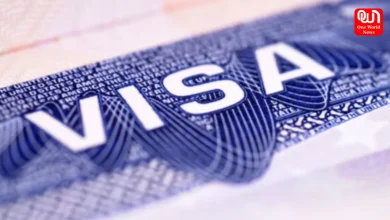How Texas’ plan to arrest and deport migrants for illegal entry would work
Explore Texas' controversial law allowing arrest & deportation of illegal migrants, sparking legal battles & constitutional debates.
Understanding the Mechanisms of Texas’ Approach to Arrest and Deport Migrants for Illegal Entry
Texas has recently introduced a contentious law empowering state authorities to arrest, detain, and deport individuals entering the United States illegally. This move has sparked legal debates and raised questions about its implementation, constitutionality, and potential ramifications. To comprehend the intricacies of Texas’ plan, it’s imperative to delve into its operational aspects and the surrounding controversies.
The Legal Landscape: Amidst legal battles, Texas’ law granting authority to arrest illegal border crossers awaits a verdict from the federal appeals court. The state’s stance, championed by Governor Greg Abbott, asserts its right to combat what is perceived as an “invasion” of migrants. However, the Department of Justice contends that such measures exceed state jurisdiction and impede federal immigration prerogatives.
Read more: How Gen Z Can Better Integrate Into The Workplace
Who Falls Under Scrutiny? The law empowers Texas law enforcement to apprehend individuals suspected of illegal entry. These individuals face two options: voluntary departure or prosecution for misdemeanor illegal entry, potentially escalating to felony charges upon subsequent apprehensions. However, lawful residents, including asylees and DACA beneficiaries, are exempt from enforcement, ostensibly safeguarding their rights.

Geographical Reach and Exclusions: While applicable statewide, the law’s primary focus lies within 50 miles of the U.S.-Mexico border, where the majority of apprehensions are expected. Nonetheless, certain locations such as schools, places of worship, and healthcare facilities are designated off-limits for arrests. This delineation aims to prevent disruptions in crucial societal spheres while raising questions about logistical challenges and migrants’ post-deportation destinations.
Constitutional Conundrum: The constitutionality of Texas’ law remains contentious, with the Supreme Court’s initial decision sidestepping the issue. Critics argue that it encroaches upon federal immigration authority, echoing past legal battles such as Arizona’s controversial legislation. Conversely, Texas contends that its law aligns with federal statutes, raising fundamental questions about states’ rights versus federal supremacy in immigration enforcement.
Read more: know About International Day of Happiness 2024
Border Realities and Policy Implications: Against a backdrop of fluctuating border apprehensions, Texas’ stringent measures intersect with broader immigration policies. While recent declines may reflect seasonal trends and heightened enforcement efforts, tensions persist between Texas and the Biden administration. Abbott’s criticisms of federal inaction have prompted additional state interventions, ranging from physical barriers to legal mandates, further complicating the immigration landscape.
Controversies and Criticisms: Texas’ approach has drawn criticism, notably from Mexico’s President and civil rights organizations, citing concerns over racial profiling and civil liberties infringements. These apprehensions underscore the delicate balance between security imperatives and human rights considerations. Moreover, the lack of reciprocity from neighboring nations like Mexico adds layers of complexity to the enforcement dynamics and regional diplomatic relations
Navigating Forward: As legal battles unfold and border dynamics evolve, Texas’ endeavor to curb illegal immigration underscores broader policy debates on national security, sovereignty, and humanitarian obligations. Finding a balance between enforcement measures, constitutional safeguards, and diplomatic engagements remains paramount in navigating the complex terrain of immigration governance.
We’re now on WhatsApp. Click to join.
Conclusion: Texas’ plan to arrest and deport migrants for illegal entry reflects a convergence of legal, political, and humanitarian considerations. While proponents tout it as a necessary response to border challenges, skeptics warn of potential violations and diplomatic repercussions. Explore Texas’ controversial immigration law, its impact on border security, legal challenges, and implications for migrant rights and state-federal relations, igniting constitutional debates and policy discussions. As the legal saga continues and border dynamics shift, the implications of Texas’ approach reverberate far beyond its state lines, shaping the contours of national immigration discourse.
Like this post?
Register at One World News to never miss out on videos, celeb interviews, and best reads.









